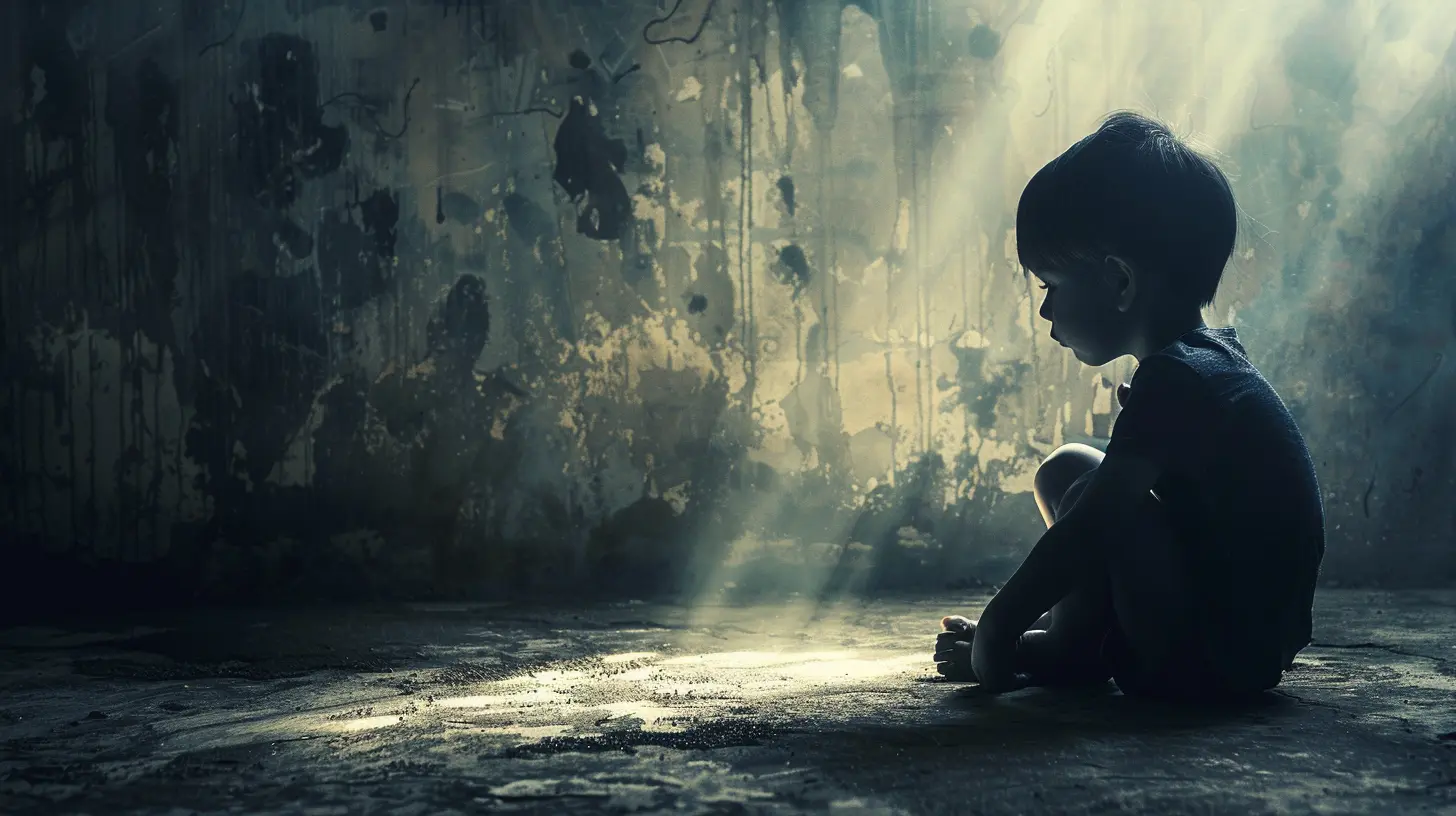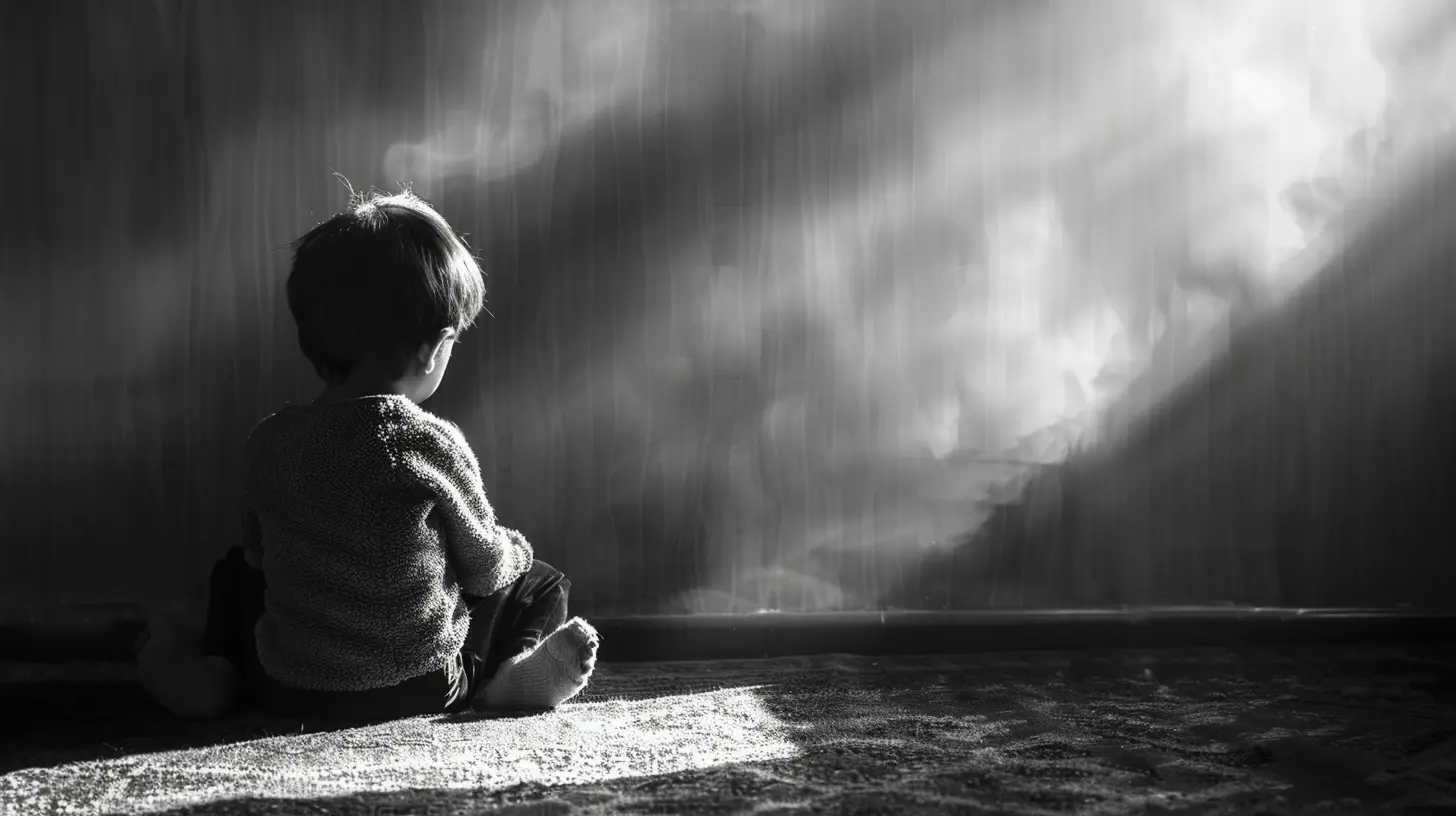How Early Childhood Trauma Shapes Adult Relationships
22 July 2025
We often hear about how our childhood experiences shape who we become as adults. But what if those experiences include trauma? How does that affect us in the long run, especially when it comes to relationships? To put it simply, childhood trauma doesn’t just stay in childhood. It lingers, manifests, and often quietly influences the way we connect with others throughout our lives.
In this article, we’re going to dive deep into the fascinating (and sometimes heartbreaking) ways early childhood trauma can shape adult relationships. From attachment issues to emotional triggers, we’ll break down how those early experiences can leave a lasting imprint.

What Is Early Childhood Trauma?
Before we get into the nitty-gritty of how it affects adult relationships, let’s first clarify what we mean by early childhood trauma. Trauma in early childhood can come in many forms—physical, emotional, or even neglect. It could be the result of an abusive parent, living in a chaotic environment, or even feeling unloved or abandoned.It’s essential to understand that trauma isn’t just about extreme cases like domestic violence or severe neglect. Sometimes, something that seems minor to an adult can feel devastating to a child. And because children are still developing their coping mechanisms and understanding of the world, the effects of that trauma can be profound and long-lasting.
Types of Early Childhood Trauma
- Physical Trauma: Abuse, injuries, or medical issues that caused significant pain or fear.- Emotional Trauma: Verbal abuse, emotional neglect, or witnessing domestic violence.
- Neglect: Being deprived of basic emotional or physical needs, such as food, warmth, or affection.
- Separation Trauma: Losing a parent or caregiver, either through death, abandonment, or divorce.

The Impact on Emotional Development
Here’s the thing about trauma: it doesn’t just sit quietly in the background of your life. It can deeply affect a child’s emotional development, and in turn, this has a ripple effect on adult relationships. Trauma can disrupt the development of essential emotional skills, like self-regulation or the ability to trust others.Ever wonder why some people seem naturally more anxious or struggle with intimate relationships? More often than not, the root cause can be traced back to early childhood experiences.
Attachment Styles: The Blueprint for Future Relationships
One of the most significant ways early childhood trauma affects adult relationships is through attachment styles. The way we bond with our primary caregivers as children creates a blueprint for how we form relationships later in life.Psychologist John Bowlby developed the theory of attachment, which is still widely referenced today. He explained that children who experience trauma or inconsistent caregiving tend to develop insecure attachment styles. These styles can heavily influence how we behave in romantic relationships or friendships.
The Four Main Attachment Styles:
1. Secure Attachment: The ideal attachment style. People with secure attachment tend to feel comfortable with intimacy and are generally trusting of their partners.2. Anxious Attachment: People with this style often crave closeness but fear abandonment. They may become clingy or overly dependent on their partners.
3. Avoidant Attachment: Those with avoidant attachment tend to distance themselves from others emotionally. They may struggle with intimacy and feel uncomfortable with closeness.
4. Fearful-Avoidant (Disorganized) Attachment: This is a combination of anxious and avoidant attachment. These individuals want close relationships but often fear getting hurt, leading to push-pull dynamics in their relationships.
If a child grows up feeling unsafe or unloved, they’re more likely to develop an anxious, avoidant, or fearful attachment style. And guess what? Those attachment styles often follow them into adulthood, impacting their romantic and even platonic relationships.

How Childhood Trauma Affects Communication in Adult Relationships
Communication is the glue that holds relationships together. But what happens when you’ve experienced trauma as a child? Well, it can complicate things. People who have endured trauma may struggle with open communication. They may fear conflict or have difficulty expressing their emotions clearly. Think about it—if you grew up in a household where expressing yourself led to punishment or neglect, it’s only natural that you’d carry those fears into adulthood.Common Communication Issues Stemming from Early Trauma
- Fear of Vulnerability: Many people with unresolved trauma struggle to open up emotionally. They may avoid deep conversations or shut down when asked how they feel.- Hyper-Sensitivity to Criticism: Trauma survivors often internalize criticism deeply, even when it's constructive. This can lead to defensiveness or overreacting to perceived slights.
- Fear of Rejection: Because they were often made to feel unworthy in childhood, they may be hyper-vigilant in relationships, constantly on guard for signs that they might be abandoned or rejected.
These communication barriers aren’t just frustrating; they can be relationship killers. Without addressing the root cause—often the early trauma—these issues can create a cycle of misunderstanding and emotional distance in adult relationships.

The Role of Triggers and Emotional Flashbacks
Here’s a tricky part about trauma: it doesn’t just sit in the past. It can pop up unexpectedly in the present through triggers and emotional flashbacks. Triggers are stimuli—like a word, a situation, or even a smell—that remind the person of their traumatic experience.For someone who has experienced childhood trauma, adult relationships can be a minefield of potential triggers. A simple argument with a partner or feeling ignored in a conversation could trigger overwhelming feelings of fear, anger, or sadness. These emotional flashbacks can make the person feel as though they’re reliving their trauma all over again, even if the current situation is entirely different.
How Triggers Affect Relationships
Imagine you’re in a relationship, and your partner suddenly becomes distant after a minor disagreement. You might not realize it, but that disagreement triggered something deep from their past. Maybe it reminded them of feeling abandoned or criticized as a child. As a result, they might shut down emotionally or lash out, even if the current issue is relatively small.Without understanding the role of triggers, many people misinterpret these reactions. They think their partner is overreacting or being irrational, when really, they’re responding to deeply ingrained emotional wounds.
Coping Mechanisms and Relationship Patterns
People who have experienced early childhood trauma don’t just carry emotional scars; they often develop coping mechanisms to manage their pain. Unfortunately, these coping mechanisms can be counterproductive in relationships.For example, someone who was emotionally neglected as a child might have learned to be hyper-independent. They might avoid relying on others because they’ve learned not to expect support or affection. While this coping mechanism might have helped them survive in childhood, it can create distance in adult relationships, where emotional reliance on each other is often necessary for a healthy bond.
Common Coping Mechanisms in Relationships:
- Emotional Withdrawal: To avoid getting hurt, some people may pull away emotionally, even when they crave connection.- People-Pleasing: On the flip side, some trauma survivors might become people-pleasers, constantly seeking approval and avoiding conflict at all costs.
- Self-Sabotage: Some individuals might unconsciously sabotage their relationships, pushing people away before they have the chance to leave.
These patterns can be incredibly frustrating for both the person experiencing them and their partner. But the good news is, with self-awareness and the right support, these patterns can be changed.
Healing from Childhood Trauma
The effects of early childhood trauma on adult relationships are real, but they’re not set in stone. Healing is possible. It’s not easy, and it certainly doesn’t happen overnight, but with the right approach, individuals can break free from the chains of their past.Steps Toward Healing and Healthier Relationships:
1. Therapy: This is often the first and most crucial step. A professional therapist can help you unpack your trauma and understand how it’s affecting your relationships.2. Building Self-Awareness: Understanding your triggers, attachment style, and coping mechanisms is key. Once you’re aware of these patterns, you can start to change them.
3. Mindfulness Practices: Techniques like meditation and journaling can help you stay present and avoid being overwhelmed by emotional flashbacks or triggers.
4. Open Communication: Learning to express your needs and feelings openly, without fear of judgment, can go a long way in improving relationships.
Healing from childhood trauma is like learning to walk again after a long injury. It’s painful, slow, and requires patience, but the end result is worth it.
Conclusion: Trauma Isn’t a Life Sentence
Early childhood trauma can have a profound effect on adult relationships, but it doesn’t have to define them. By understanding the impact of trauma, recognizing the patterns it creates, and seeking out the right support, individuals can learn to build healthier, more fulfilling connections. Remember, trauma might shape you, but it doesn’t have to control your future.all images in this post were generated using AI tools
Category:
Psychological TraumaAuthor:

Ember Forbes
Discussion
rate this article
1 comments
William Reynolds
Understanding the impact of early childhood trauma is the first step towards healing. Embrace growth and connection, as every day offers a chance to thrive.
August 23, 2025 at 5:00 PM

Ember Forbes
Absolutely, understanding early trauma is crucial for healing. Growth and connection are vital for thriving in adult relationships. Thank you for your insightful comment!


